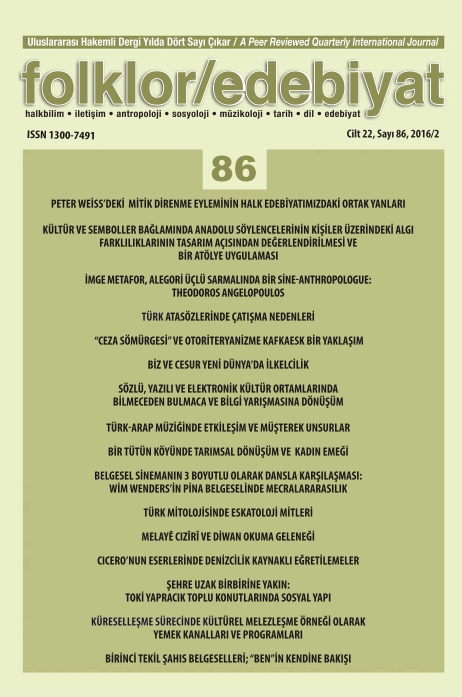Melayê Cizîrî ve Diwan Okuma Geleneği
Melayê Cizîrî in the Tradition of Dîwan Recitation
Author(s): Serdar ŞengülSubject(s): Cultural history, Poetry, Turkish Literature, Other Language Literature, Cultural Anthropology / Ethnology, School education, 16th Century
Published by: Uluslararası Kıbrıs Üniversitesi
Keywords: Madrasa; tekke; Islamic sufism; reading qeside;
Summary/Abstract: Madrasa scholars and students read Dîwan written by a sixteenth century scholar and sufi poet Melayê Cizîrî in a melodic way at the courtyards of madrasas located in the east and southeast Turkey. Alongside the religious sciences based on Arabic language Dîwan reading constitues a tradition in these madrasas and became the symbolic siginifier of them. Consisdering the madrasa-tekke and religious-sufic sciences split in Muslim tradition the place which Dîwan occopies at these madraras needed to be explained. This essay aims to explore the historical and cultural dynamics which makes a sufic poet and his Dîwan as symbol for the madrasas from an anthropological perspective. There have been two main tendencies throughout Muslim history one of which is universalistic tendencies based on the madrasa and the Arabic religious sciences studied there. The other is local and particularistic understanding of Islam and performing it according to local aesthetic inclination. However, these two dynamics has never been isolated from each other and have transcended their boundaries in different ways created intermediate forms. Dîwan, written by a madrasa scholar and sufî poet, composed of sufic poems, read and musically performed by madrasa scholars at the courtyards of madrasas seems to erase the physical and espistemological boundaries established throughout the history.
Journal: Folklor/Edebiyat
- Issue Year: 22/2016
- Issue No: 86
- Page Range: 181-202
- Page Count: 22
- Language: Turkish

